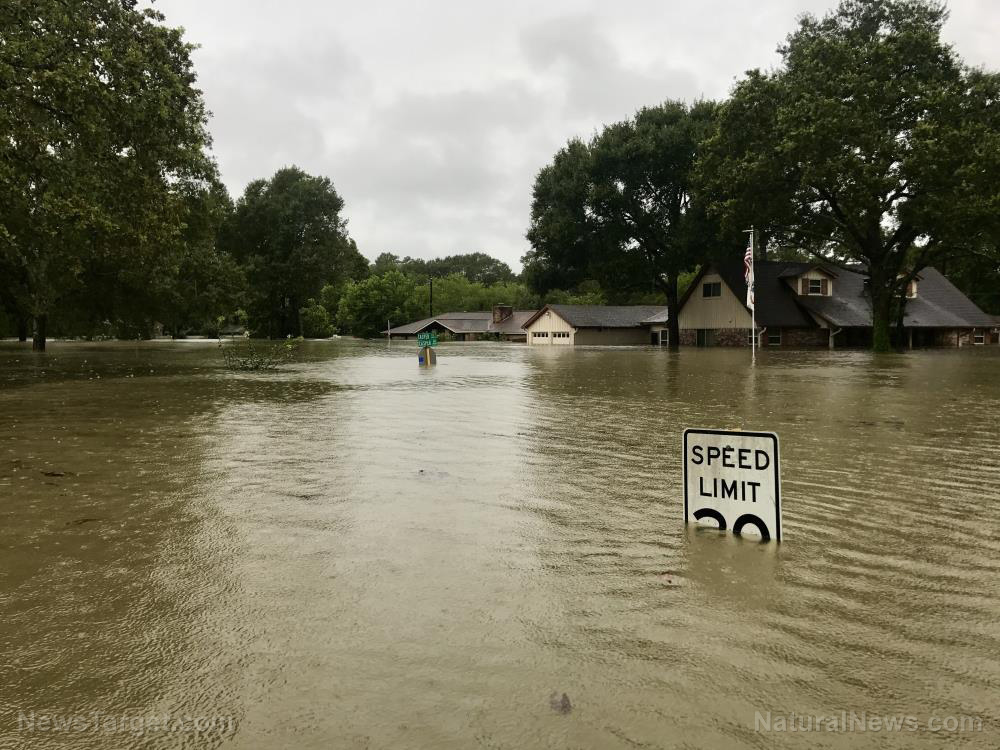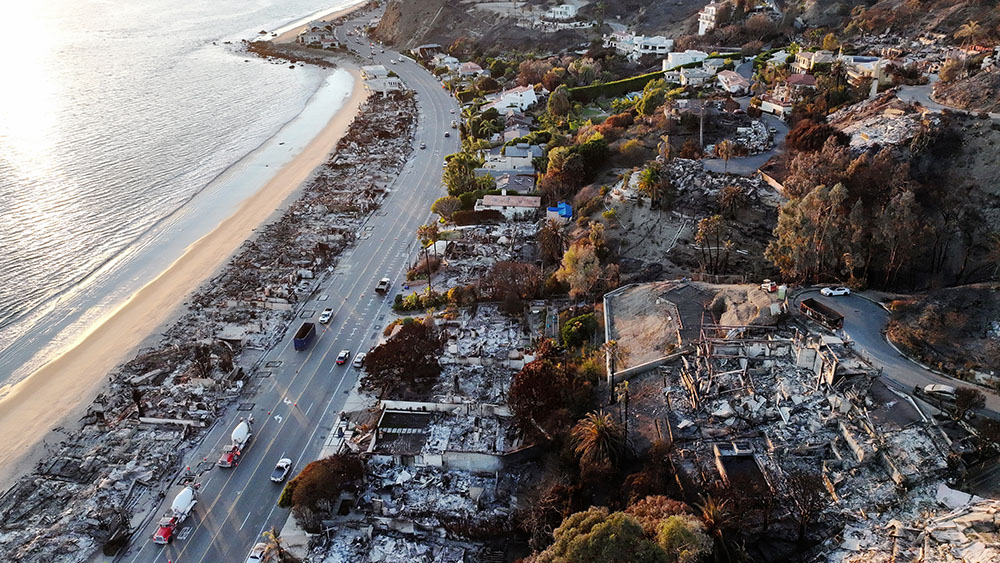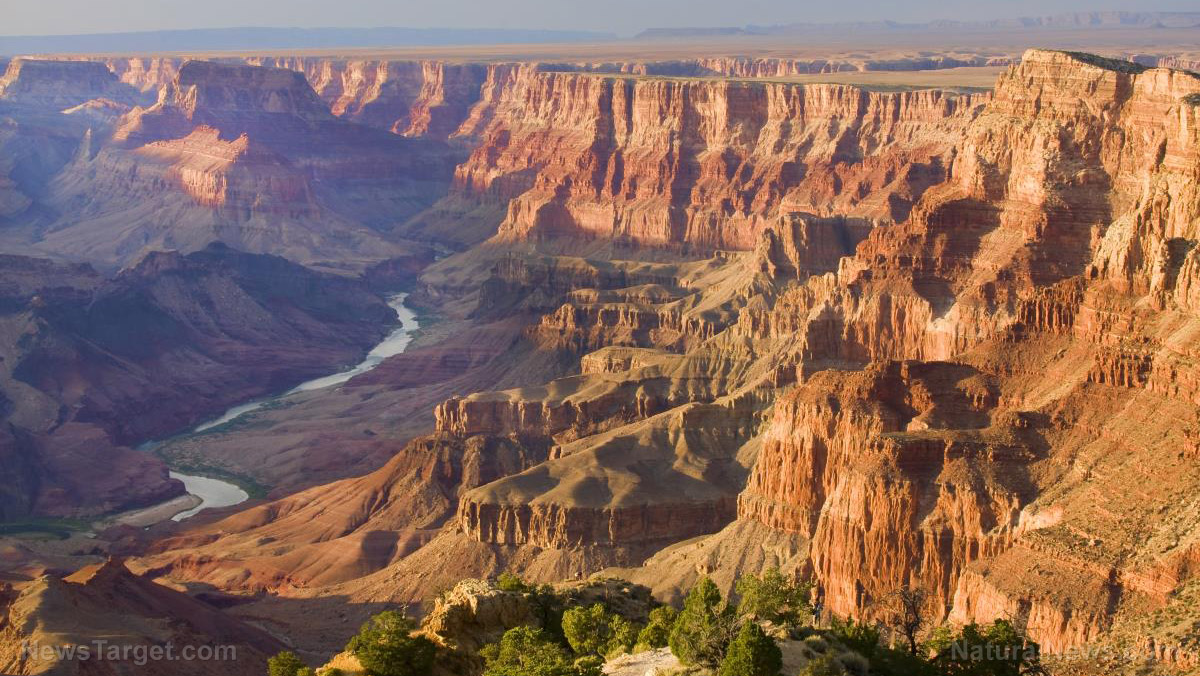 Parler
Parler Gab
Gab
- Austin Fire Chief Joel G. Baker denied initial deployment requests for flood-stricken Kerrville, facing accusations of prioritizing budget concerns over lives.
- Over 100 deaths reported in Central Texas flooding, including a military vehicle accident in Fort Hood that killed five service members.
- Austin firefighters union initiates a vote of no confidence against Baker, citing "egregious dereliction of duty."
- Water safety oversight failures, akin to Flint’s crisis, now under scrutiny as communities question systemic preparedness.
- State-wide coordination gaps in disaster response highlighted amid controversies over leadership accountability.
"Dereliction of duty" or prudent resource management?
The conflict centers on the timing and scale of the Austin Fire Department’s (AFD) response. By AFD’s own measures, its Special Operations teams are among the most elite in Texas, with specialized training in submerged vehicle rescues and rapid flood deployment. Despite state emergency orders and two formal requests from rescue crews, Baker delayed sending personnel. Only three rescue swimmers were deployed on July 4, while boats and swiftwater teams remained grounded until July 7. "It is unforgivable that a fire chief would NOT allow highly trained firefighters to answer the call to save lives," said Bob Nicks of the AFA, alleging Baker misunderstood reimbursement policies. Texas law requires state-funded reimbursements for first-responder redeployment, yet the chief maintained the decision hinged on balancing resources for neighboring areas and Austin’s potential needs. "We must reserve staff locally given this storm’s unpredictability," Baker stated, explaining delayed deployments included eight personnel only by July 6. Critics counter that Austin’s centralized expertise put the city in a unique position to lead relief efforts. "We were forced to stand down and lives were lost," said Nicks, with the AFA organizing a July 8 "no confidence" vote for Baker.A pattern of disregard? Water safety failures and military losses deepen trust gaps
This crisis echoes broader concerns about emergency oversight, from water safety negligence—a pattern dating back to Flint, Michigan—to recent military tragedies. In Fort Hood, central Texas, the Army mourned five soldiers killed when their vehicle collided on rain-slicked roads near a flooded creek. Meanwhile, separate investigations into water safety protocols reveal allegations of lax inspections nationwide, undermining cash-strapped communities’ trust in official warnings. "Flint made everyone question public guarantees. Now, when warnings come, communities ask, who can we trust?" remarked one emergency policy analyst. In Austin, the union’s public shaming of Baker suggests a wider distrust of leadership when lives hang in the balance.The cost of delay in an unfolding crisis
The stakes have never been higher. Climate models predict more frequent, severe disasters, yet public agencies grapple with outdated resources and bureaucratic friction. In Austin, where summer flash floods test even the best-prepared systems, Baker’s reticence strains credulity for firefighters who argued they were ready "before the waters began to rise." Historically, flood response lag often compounds casualties. During Kerrville’s deluge, officials described "historic water levels" and told FOX 7 Austin that 10 girls and a counselor from Camp Mystic remain missing. "This isn’t just about Kerrville—it’s a warning shot for every community," said AFA president Steve Ciudad. "If we can’t act when the window exists, when will we?"A democracy test in disaster
This Texas tempest forces a reckoning: Who bears the responsibility when leadership hesitates? For Austin firefighters, the choice is stark—remove Baker or risk repeating his "cost over human" calculus. For policymakers, it demands systemic scrutiny of water safety and compensation policies that pit dollars against lives. As recovery continues, accountability vows ring loud. "We’re committed to shaking up complacency," declared Nicks, "so when the next flood comes, ‘no confidence’ in leadership stops being an option—and starts being a fact." Sources for this article include: FireEngineering.com Fox7Austin.comTrump: Let’s ‘not waste time and energy on Jeffrey Epstein, somebody that nobody cares about’
By News Editors // Share
Grand Canyon’s historic lodge consumed by fire amid toxic gas crisis and evacuations
By Willow Tohi // Share
FEMA flood map changes preceded deadly Texas camp disaster
By Willow Tohi // Share
Health Ranger Report: Marjory Wildcraft explains why off-grid survival skills are important
By Kevin Hughes // Share
Governments continue to obscure COVID-19 vaccine data amid rising concerns over excess deaths
By patricklewis // Share
Tech giant Microsoft backs EXTINCTION with its support of carbon capture programs
By ramontomeydw // Share
Germany to resume arms exports to Israel despite repeated ceasefire violations
By isabelle // Share










